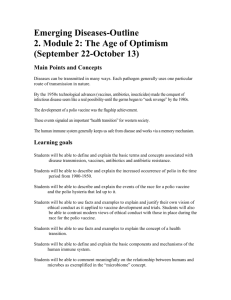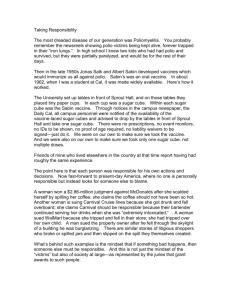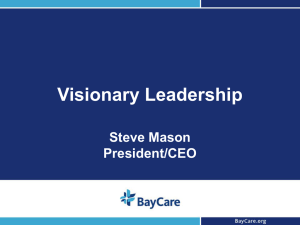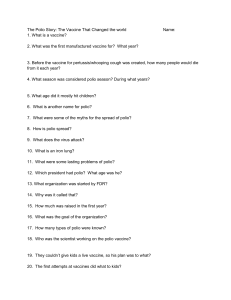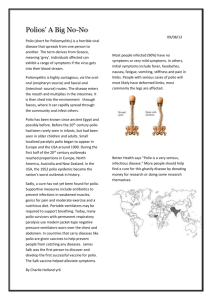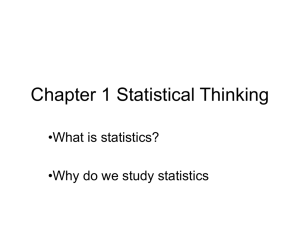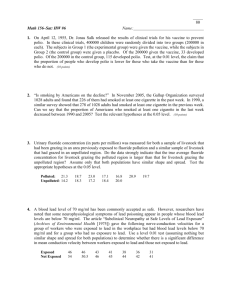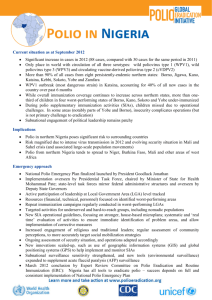Why We Dont Need Animal Experimentation
advertisement
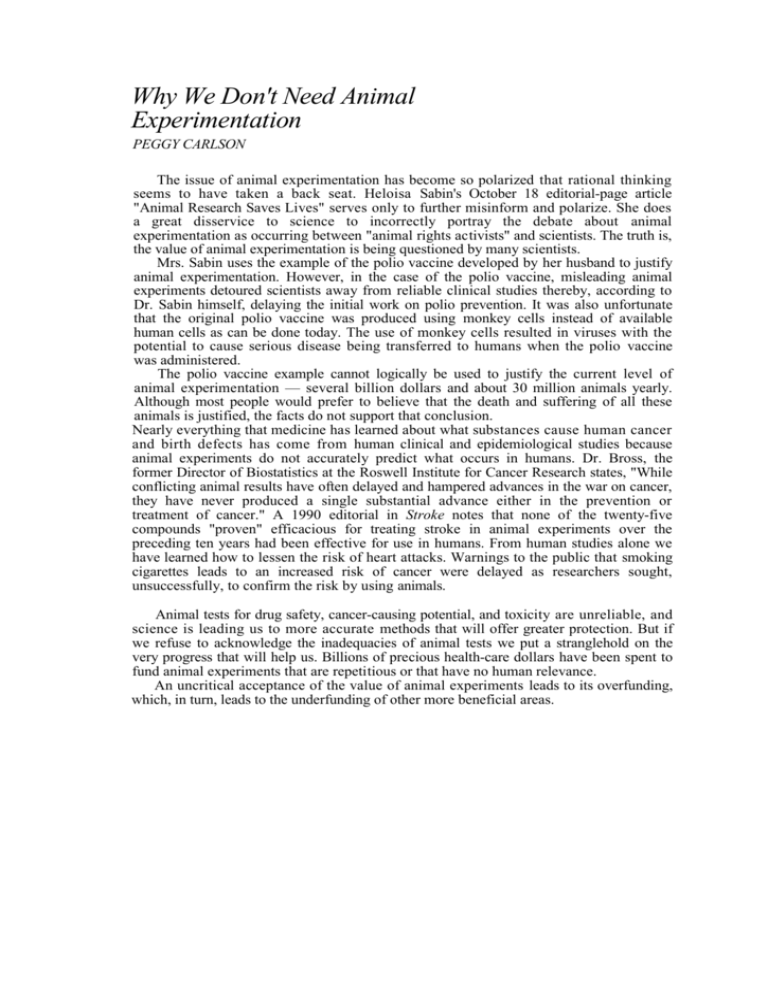
Why We Don't Need Animal Experimentation PEGGY CARLSON The issue of animal experimentation has become so polarized that rational thinking seems to have taken a back seat. Heloisa Sabin's October 18 editorial-page article "Animal Research Saves Lives" serves only to further misinform and polarize. She does a great disservice to science to incorrectly portray the debate about animal experimentation as occurring between "animal rights activists" and scientists. The truth is, the value of animal experimentation is being questioned by many scientists. Mrs. Sabin uses the example of the polio vaccine developed by her husband to justify animal experimentation. However, in the case of the polio vaccine, misleading animal experiments detoured scientists away from reliable clinical studies thereby, according to Dr. Sabin himself, delaying the initial work on polio prevention. It was also unfortunate that the original polio vaccine was produced using monkey cells instead of available human cells as can be done today. The use of monkey cells resulted in viruses with the potential to cause serious disease being transferred to humans when the polio vaccine was administered. The polio vaccine example cannot logically be used to justify the current level of animal experimentation — several billion dollars and about 30 million animals yearly. Although most people would prefer to believe that the death and suffering of all these animals is justified, the facts do not support that conclusion. Nearly everything that medicine has learned about what substances cause human cancer and birth defects has come from human clinical and epidemiological studies because animal experiments do not accurately predict what occurs in humans. Dr. Bross, the former Director of Biostatistics at the Roswell Institute for Cancer Research states, "While conflicting animal results have often delayed and hampered advances in the war on cancer, they have never produced a single substantial advance either in the prevention or treatment of cancer." A 1990 editorial in Stroke notes that none of the twenty-five compounds "proven" efficacious for treating stroke in animal experiments over the preceding ten years had been effective for use in humans. From human studies alone we have learned how to lessen the risk of heart attacks. Warnings to the public that smoking cigarettes leads to an increased risk of cancer were delayed as researchers sought, unsuccessfully, to confirm the risk by using animals. Animal tests for drug safety, cancer-causing potential, and toxicity are unreliable, and science is leading us to more accurate methods that will offer greater protection. But if we refuse to acknowledge the inadequacies of animal tests we put a stranglehold on the very progress that will help us. Billions of precious health-care dollars have been spent to fund animal experiments that are repetitious or that have no human relevance. An uncritical acceptance of the value of animal experiments leads to its overfunding, which, in turn, leads to the underfunding of other more beneficial areas.
